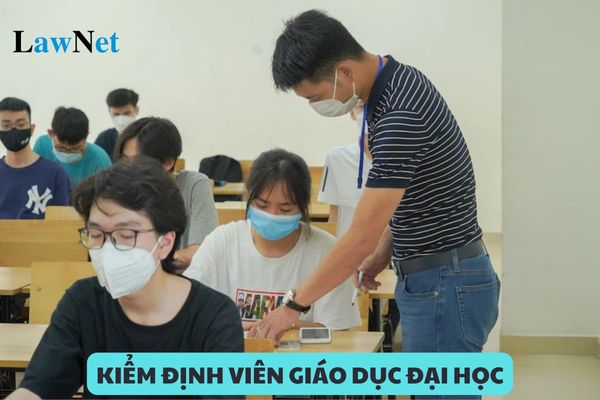What are prohibited acts of accreditors of higher education and pedagogical colleges in Vietnam?
What are prohibited actions of accreditors of higher education and pedagogical colleges in Vietnam?
According to Clause 3 Article 5 of Circular 14/2022/TT-BGDDT, accreditors of higher education and pedagogical colleges are prohibited from taking the following actions:
- Exploiting their duties and powers as accreditors to perform actions against the principles of quality assurance activities for educational institutions, quality assessment organizations, and other relevant individuals or organizations for personal gain;
- Colluding or engaging in relationships with educational institutions or quality assessment organizations to negotiate or sign quality assurance consultancy contracts in violation of the law, affecting public interests and the legitimate rights of individuals or organizations;
- Receiving or requesting any money or other benefits from educational institutions and other relevant individuals or organizations outside of the agreed fees, costs in the signed contract, and according to legal regulations;
- Insulting the dignity or lowering the reputation of colleagues; taking advantage of their influence to unlawfully interfere in colleagues' activities;
- Other prohibited behaviors as stipulated by law.

What are prohibited acts of accreditors of higher education and pedagogical colleges in Vietnam? (Image from Internet)
Who has the authority to issue accreditor cards of higher education and pedagogical colleges in Vietnam?
Pursuant to Article 13 of Circular 14/2022/TT-BGDDT regarding the authority to issue and revoke accreditor cards:
Authority to issue and revoke accreditor cards
The Director General of the Quality Management Department has the authority to issue and revoke accreditor cards.
Thus, the Director General of the Quality Management Department has the authority to issue accreditor cards for higher education and pedagogical colleges accreditors.
Vietnam: When is the accreditor card of higher education and pedagogical colleges revoked?
According to Article 16 of Circular 14/2022/TT-BGDDT regarding the revocation of accreditor cards:
Revocation of accreditor cards
- The accreditor card is revoked when the cardholder does not meet the requirements specified in point b, clause 2, Article 5 of this Circular.
- The accreditor card is revoked when the cardholder commits one of the following violations:
a) Engaging in fraudulent actions to pass the accreditor qualification examination;
b) Deliberately providing dishonest quality assurance results;
c) Violating any of the prohibitions as specified in clause 3, Article 5 of this Circular;
d) Losing civil capacity or having limited civil capacity; being convicted with a legally effective judgment.
According to Clause 2, Article 5 of Circular 14/2022/TT-BGDDT regarding the duties, powers, responsibilities, and prohibitions for accreditors:
Duties, powers, responsibilities, and prohibitions for accreditors
...
- Responsibilities
a) Maintain the integrity, reputation, and honor of accreditors; adhere to legal regulations and rules of relevant agencies, organizations, and units in performing quality assurance activities;
b) Within each 05-year (60-month) period from the date of card issuance, participate in at least 02 (two) external evaluation teams and 01 (one) regular training course to enhance professional competency, conducted by an institution meeting the criteria in Clause 2, Article 8 of this Circular, or 01 (one) professional training course organized by the Ministry of Education and Training;
c) Explain quality assurance activities to state management agencies upon request.
Thus, the accreditor card for higher education and pedagogical colleges is revoked when the cardholder does not meet the following requirements:
- Maintain the integrity, reputation, and honor of accreditors; adhere to legal regulations and rules of relevant agencies, organizations, and units in performing quality assurance activities;
- Within each 05-year (60-month) period from the date of card issuance, participate in at least 02 (two) external evaluation teams and 01 (one) regular training course to enhance professional competency, conducted by an institution meeting the criteria in Clause 2, Article 8 of Circular 14/2022/TT-BGDDT;
- Explain quality assurance activities to state management agencies upon request.
Moreover, the accreditor card for higher education and pedagogical colleges is revoked when the cardholder commits one of the following violations:
- Engaging in fraudulent actions to pass the accreditor qualification examination;
- Deliberately providing dishonest quality assurance results;
- Violating any of the prohibitions for accreditors;
- Losing civil capacity or having limited civil capacity; being convicted with a legally effective judgment.

